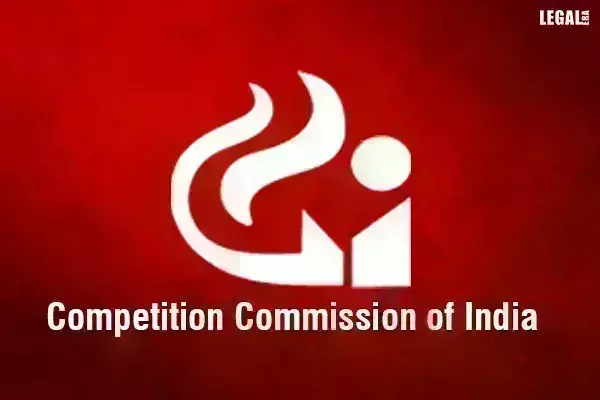- Home
- News
- Articles+
- Aerospace
- Artificial Intelligence
- Agriculture
- Alternate Dispute Resolution
- Arbitration & Mediation
- Banking and Finance
- Bankruptcy
- Book Review
- Bribery & Corruption
- Commercial Litigation
- Competition Law
- Conference Reports
- Consumer Products
- Contract
- Corporate Governance
- Corporate Law
- Covid-19
- Cryptocurrency
- Cybersecurity
- Data Protection
- Defence
- Digital Economy
- E-commerce
- Employment Law
- Energy and Natural Resources
- Entertainment and Sports Law
- Environmental Law
- Environmental, Social, and Governance
- Foreign Direct Investment
- Food and Beverage
- Gaming
- Health Care
- IBC Diaries
- In Focus
- Inclusion & Diversity
- Insurance Law
- Intellectual Property
- International Law
- IP & Tech Era
- Know the Law
- Labour Laws
- Law & Policy and Regulation
- Litigation
- Litigation Funding
- Manufacturing
- Mergers & Acquisitions
- NFTs
- Privacy
- Private Equity
- Project Finance
- Real Estate
- Risk and Compliance
- Student Corner
- Take On Board
- Tax
- Technology Media and Telecom
- Tributes
- Viewpoint
- Zoom In
- Law Firms
- In-House
- Rankings
- E-Magazine
- Legal Era TV
- Events
- Middle East
- Africa
- News
- Articles
- Aerospace
- Artificial Intelligence
- Agriculture
- Alternate Dispute Resolution
- Arbitration & Mediation
- Banking and Finance
- Bankruptcy
- Book Review
- Bribery & Corruption
- Commercial Litigation
- Competition Law
- Conference Reports
- Consumer Products
- Contract
- Corporate Governance
- Corporate Law
- Covid-19
- Cryptocurrency
- Cybersecurity
- Data Protection
- Defence
- Digital Economy
- E-commerce
- Employment Law
- Energy and Natural Resources
- Entertainment and Sports Law
- Environmental Law
- Environmental, Social, and Governance
- Foreign Direct Investment
- Food and Beverage
- Gaming
- Health Care
- IBC Diaries
- In Focus
- Inclusion & Diversity
- Insurance Law
- Intellectual Property
- International Law
- IP & Tech Era
- Know the Law
- Labour Laws
- Law & Policy and Regulation
- Litigation
- Litigation Funding
- Manufacturing
- Mergers & Acquisitions
- NFTs
- Privacy
- Private Equity
- Project Finance
- Real Estate
- Risk and Compliance
- Student Corner
- Take On Board
- Tax
- Technology Media and Telecom
- Tributes
- Viewpoint
- Zoom In
- Law Firms
- In-House
- Rankings
- E-Magazine
- Legal Era TV
- Events
- Middle East
- Africa
CCI Dismisses Association Of Indian Labs Report Against National Accreditation Board For Testing And Calibration

CCI Dismisses Association Of Indian Labs Report Against National Accreditation Board For Testing And Calibration
Declares that the circular was not anti-competitive
The Competition Commission of India (CCI) has dismissed the report filed by the Association of Indian Laboratories (AIL) against the National Accreditation Board for Testing and Calibration Laboratories (NABL), an accreditation body and a constituent of the Quality Council of India (QCI).
AIL had raised the issue of the issuance of a circular directing accredited Conformity Assessment Bodies (CABs) operating under proprietorship, to transition to specific legal entities by a certain deadline.
The bench comprising Ravneet Kaur (chairperson), Anil Agrawal (member) and Deepak Anurag (member) held that the circular was not anti-competitive, as the transition to legal entities separate from their owners was necessary for accountability and compliance.
The AIL (informant) had alleged violations of Section 3 (anti-competitive agreements) and Section 4 (abuse of dominance) of the Competition Act, 2002.
The informant claimed that NABL acquired a dominant position by holding 90 percent of the market share. Its services were widely recognized for assuring good laboratory practices to entities. The appreciation allegedly enabled decision-makers to rely on the test results, further solidifying NABL's dominance.
The matter arose when NABL issued a circular, requiring accredited CABs to mandatorily convert into a One Person Company (OPC), Limited Liability Partnership (LLP), company, society/trust, or the government.
The AIL claimed that the circular unfairly favored large players and was impartial towards small entrepreneurs and most CABs were Micro and Small Enterprises (MSMEs). It posed several challenges to transition to the prescribed legal entities, including financial, regulatory, and operational hurdles, whereas the sole proprietorship was easier to manage.
Transitioning into the prescribed form would pose difficulties in transferring loans, tax implications on asset transfers, and the cumbersome process of obtaining various statutory licenses and registrations. As per the informant, this violated Section 3 of the Competition Act.
The AIL also accused NABL of leveraging its monopoly in the laboratory accreditation market, reinforced by governmental preferences for NABL-accredited laboratories in tender documents. The informant stated that it violated Section 4(2)(c).
However, the CCI observed that the informant's grievance arose due to the circular issued by NABL, directing accredited CABs operating under proprietorship to transition to specific legal entities by a certain deadline.
The informant argued that the directive flouted Section 4(2)(c) and particularly impacted MSMEs, for whom it was easier to establish labs under sole proprietorships.
Meanwhile, the CCI cited the Prem Prakash and National Accreditation Board for Testing and Calibration Laboratories & Others case, wherein a similar circular was contested.
The bench reasoned that it found no merit in intervening with the circular, as it mandated a structure necessary for laboratories seeking accreditation from NABL, aligning with the ISO 17025:2017 standards. It emphasized the trust element inherent in CAB accreditation and endorsed the transition to legal entities separate from their owners to reinforce accountability and compliance.
Referring to the earlier judgment and the absence of a new argument on the circular's alleged anti-competitive nature, the Commission ruled that there was no need to re-examine its contents. The informant had failed to provide evidence of any specific anti-competitive agreement under Section 3.
Thus, the CCI stated there was no evidence against NABL for violating Sections 3 & 4. Therefore, the information filed by AIL was closed under Section 26(2) and no relief arose under Section 33.



